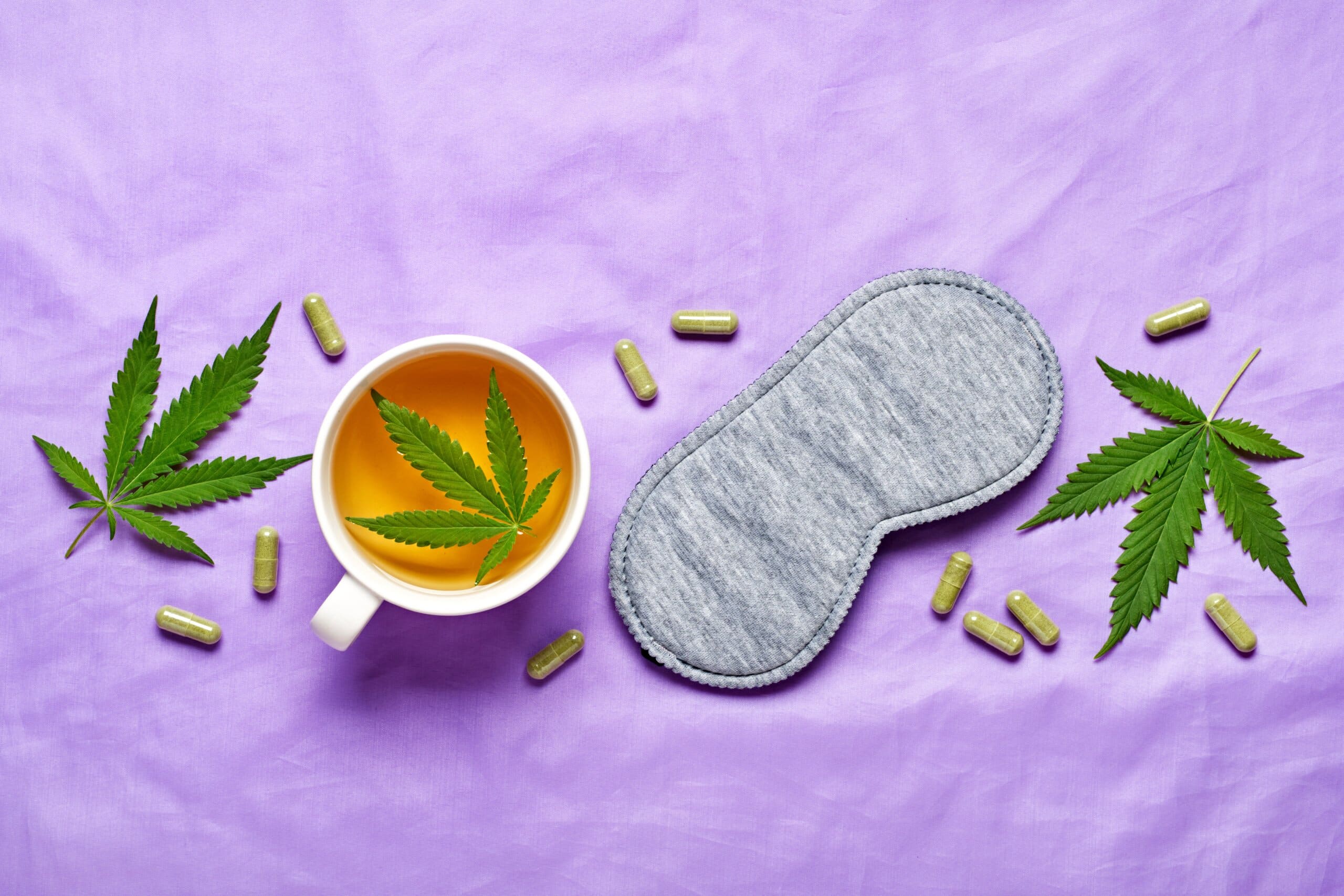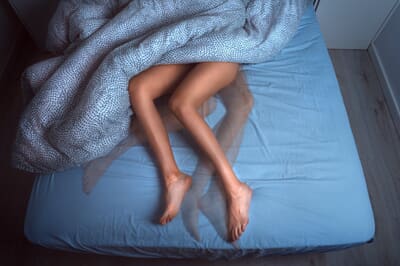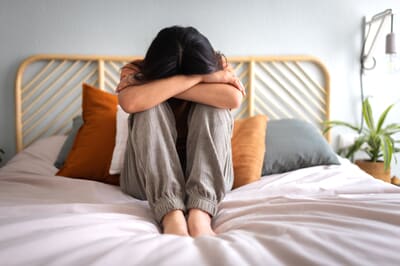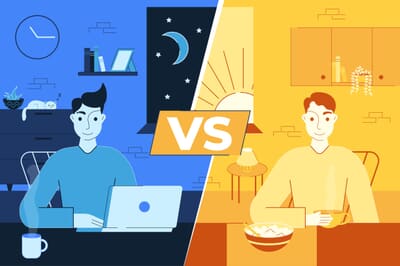There’s a lot of controversy surrounding CBD, but more and more people are using it for its relaxing and sleep-inducing effects. The use of cannabis is illegal in the UK, but so long as your CBD product contains less than 0.2% THC, you won’t be in trouble for using it.
So, if you’re considering using CBD for a better night’s sleep, our experts have put together this guide to answer your questions on the topic of CBD oil and sleep improvements. Whether you’re wondering when to take CBD oil for sleep, or how to take it, read on to learn more about the products available to you.
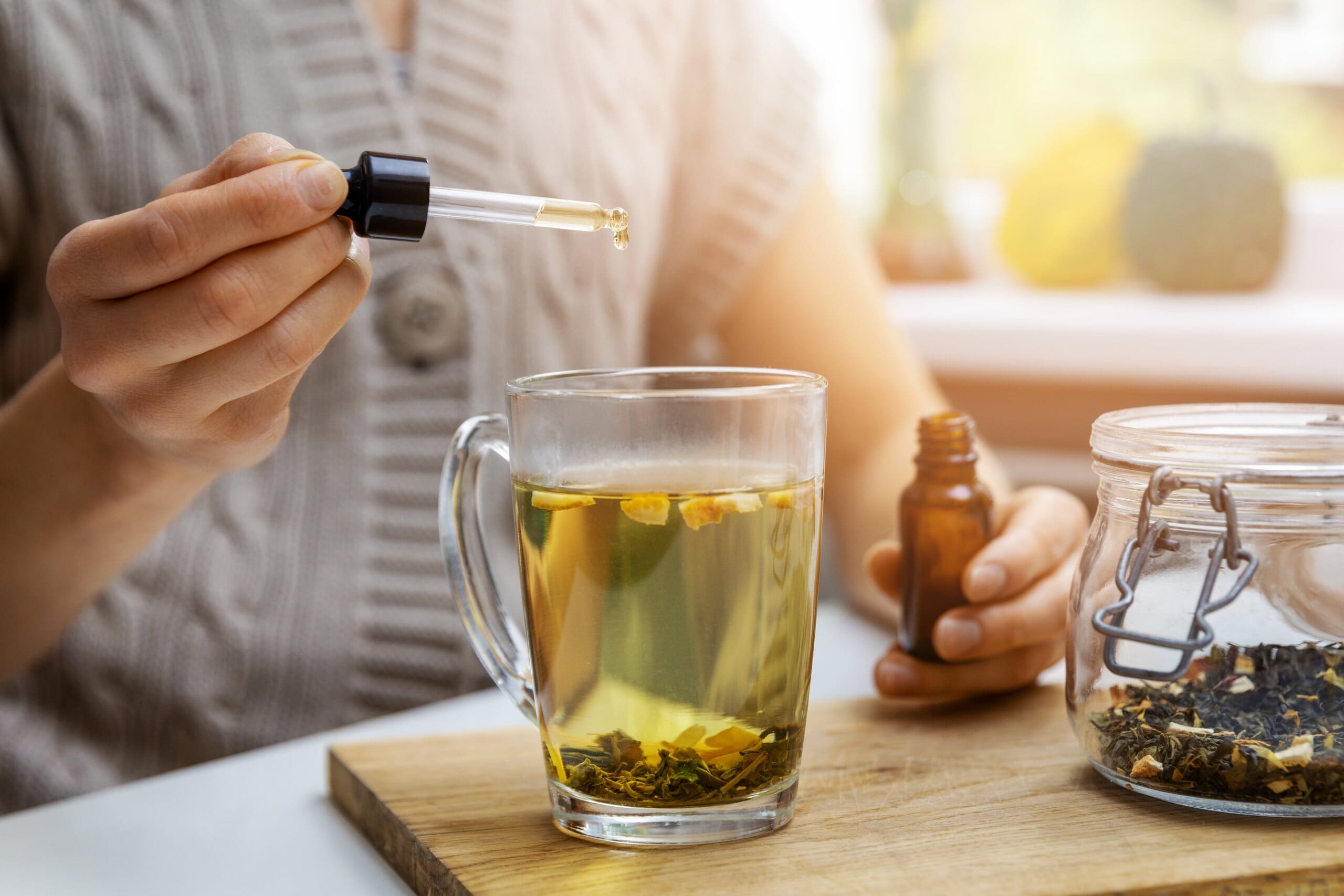
What is CBD?
Cannabidiol (more commonly known as CBD) is a non-intoxicating compound most often derived from the hemp plant. The compound can also be found in marijuana plants, but hemp has the lowest levels of THC (tetrahydrocannabinol), the psychoactive compound that gives the ‘high’ associated with cannabis use.
CBD, therefore, doesn’t produce a ‘high’ or psychoactive effect and is instead mainly used for its calming effects.
How does CBD work?
CBD works by interacting with receptors in the central nervous system. Our body has an endocannabinoid system (ECS), and cannabis can bind itself to different receptors in our brain and body.
The endocannabinoid system is responsible for physiological processes such as pain, inflammation, and immune response. When applied topically, for example, CBD can interact with the ECS receptors in the skin to help reduce inflammation. When digested, the CBD interacts with ECS receptors in the gut.
Does CBD help you sleep?
When the endocannabinoid receptors in our cells detect CBD, it promotes a response. Depending on where the signal was detected, CBD can cause a range of effects, usually calming or anti-inflammatory. The effects that CBD has on our brain and body are great for sleep.
The relationship between products such as CBD oil and sleep is a relatively new discovery. It remains a relatively under-researched field, but progress is being made at a rapid pace in learning how our bodies respond to CBD. Our Sleep Experts have discovered five essential CBD benefits for sleep:
1. Calms the mind without psychoactive effects
One of the benefits most commonly associated with CBD is its anxiety-reducing effects. THC (the psychoactive compound found in marijuana) can cause a strong lethargy that can make sleeping difficult, but hemp-based CBD has low levels of THC, so its calming effects can ease you gently to sleep.
Anxiety is one of the leading causes of most types of insomnia, with racing thoughts and overthinking being able to keep you up all night. But how exactly does CBD reduce anxiety at night?
CBD interacts with the endocannabinoid receptors in the brain’s limbic system, which regulates emotions and stores memories. When this system is disrupted, and we feel stress and anxious thoughts, CBD can trigger the endocannabinoid receptors to repress painful memories and calm the mind.
2. Combat chronic pain with a CBD ointment
One of the huge benefits of CBD is that it reduces inflammation, and can be a great solution for inflammation-related pain. While the right sleep set-up and mattress can ease painful pressure points, CBD can be a great sleep aid for reducing pain and helping you drift off to sleep more easily.
Studies have shown that applying topical CBD such as creams and ointments to painful areas can reduce inflammation and help to manage painful conditions such as arthritis, which can keep you up at night.
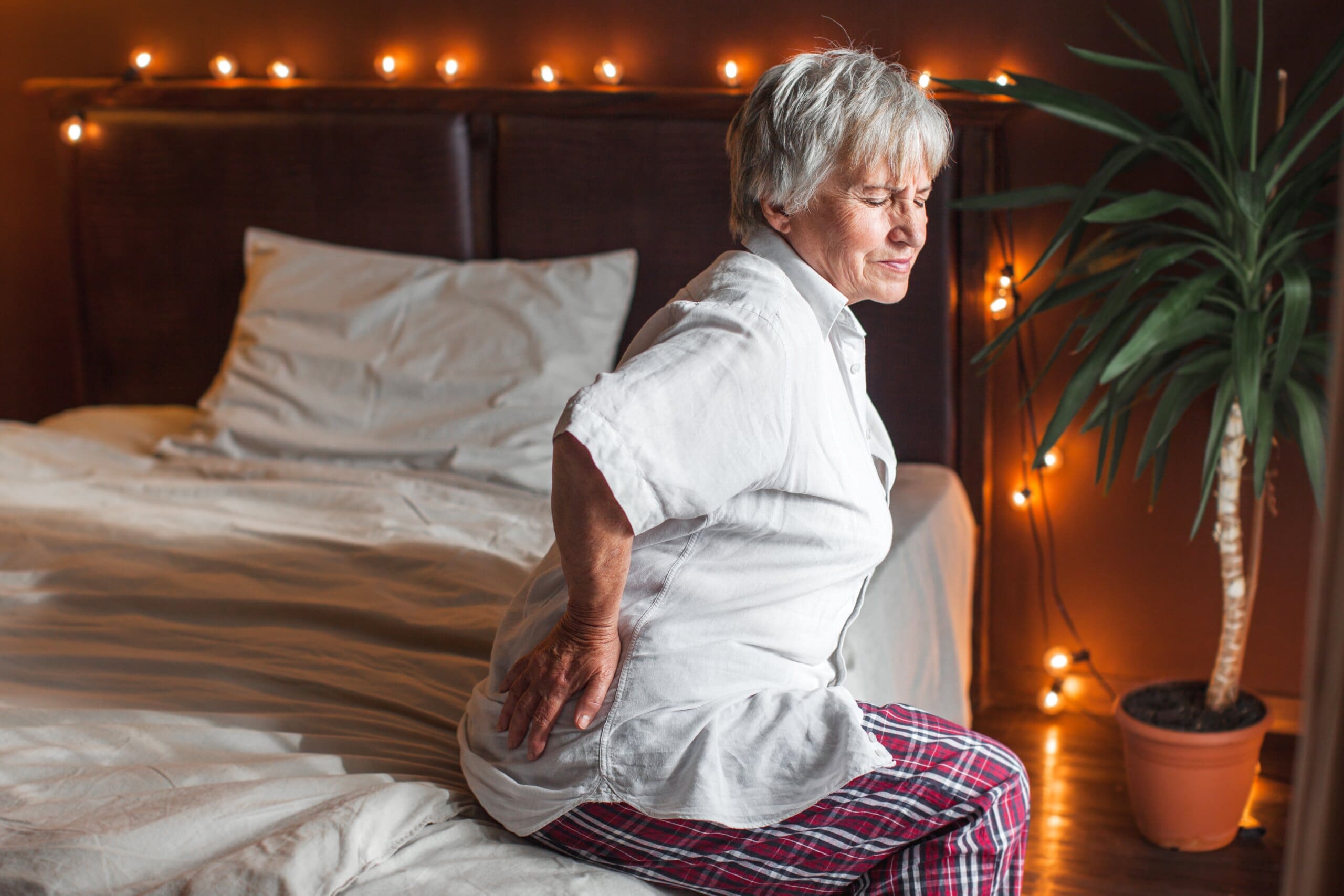
3. Treats restless leg syndrome
A neurological condition that causes an uncontrollable urge to shake your legs, restless leg syndrome (RLS) can seriously impact sleep quality. Research has suggested that using CBD before bed can reduce the abnormal nerve firings that cause involuntary muscle twitching.
In one study of patients suffering from RLS, an incredible 84% of those who tried CBD to treat it found that it calmed the more immediate symptoms of the condition.
Restless leg syndrome can cause sufferers to feel particularly sore and stiff after sleeping, so topical CBD can be a good way to reduce this inflammation and pain. If you worry you might suffer from these symptoms, our guide to restless leg syndrome can help you understand the condition and how to help it.
4. Promotes a healthier circadian rhythm
Circadian rhythm disorders occur when the body’s sleep-wake cycle is misaligned with its environment. Your internal body clock is not telling your body to go to sleep or wake up at the correct times. CBD oil can likely help you sleep by resetting your circadian rhythm back to a more natural cycle. This helps prevent interruptions in the night and promotes a healthier daily routine.
More research is needed to know exactly how this works, however, doctors say CBD can promote a more natural timing of sleep in accordance with the rhythm of the night and day. For more information on common sleep disorders and what they mean, check out our article on the most common sleep disorders explained.
5. Use CBD to improve your sex life
CBD can actually improve your sex life massively. There are a lot of cannabinoid receptors in our reproductive organs and sexual tissue, and CBD increases blood flow, encouraging natural lubrication and sensitivity. Plus, by reducing anxiety and promoting relaxation, CBD can help you and your partner get in the mood without being distracted by anxious thoughts.
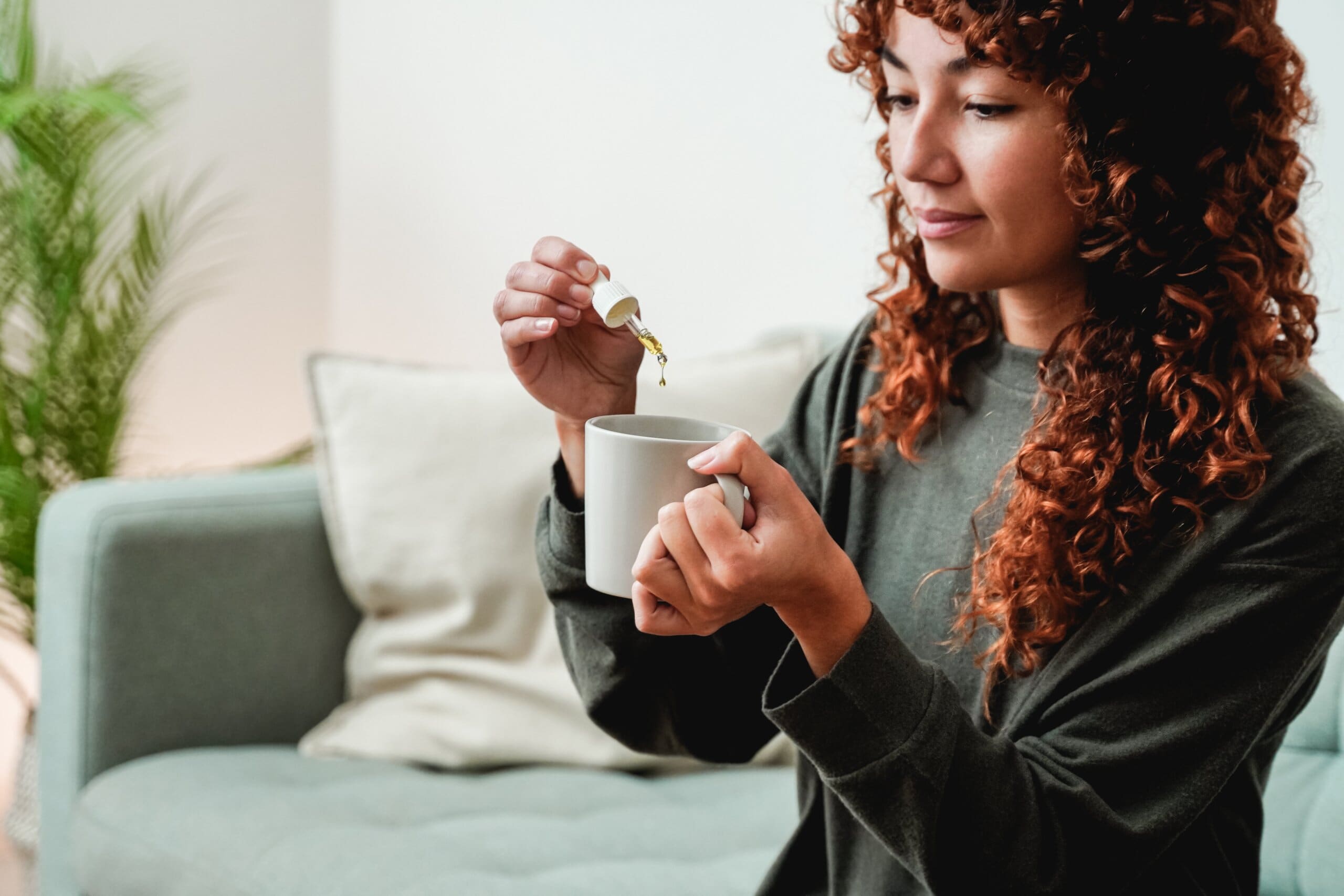
Is CBD for sleep legal?
CBD (cannabidiol) is legal in the UK, so long as it is derived only from hemp (a member of the cannabis plant family) and contains less than 0.2% of THC.
It’s very difficult to get a prescription for medical cannabis from the doctor and is usually for those suffering from severe epilepsy, nausea from chemotherapy, or to help ease symptoms of multiple sclerosis.
However, you can find a huge range of CBD products in high-street health stores, such as Holland & Barrett. In fact, they stock all kinds of CBD products, from lotions, sprays and muscle balms to chewing gum, canned drinks, and CBD oil for sleep.
What is CBN?
CBN (cannabinol) is also a compound found in cannabis plants, such as hemp. CBN does have a slightly different effect on the body than CBD, however, and is not legal in the UK.
While CBD is non-psychoactive, CBN has mild psychoactive effects, produced by THC in older plants being exposed to oxygen. CBN is known for its potential sedative effects and can be used for more intense sleep enhancement.
CBN is less studied than CBD, so the long-term effects aren’t as well known. However, CBN has been said to have similar effects to THC, causing a ‘high’ that CBD doesn’t.
Is CBN better than CBD for sleep?
Research is still being done, but scientists suggest that one of the main effects of CBN is sleepiness. However, when used alongside other sleep aids such as melatonin or even alcohol, CBN could cause excessive sleepiness which will be counterproductive for a healthy circadian rhythm.
If you’re considering trying CBN as a sleep aid, it’s best to speak to your doctor first. CBN isn’t currently legal in the UK due to its levels of THC, but you should still speak to your doctor - they will ensure your health comes first.

How can I take CBD for sleep?
If you’re thinking of using CBD oil for sleep, there are plenty of safe ways to take it for a better night of slumber. Here are just a few of the products on offer that you can choose from:
Oils and tinctures
Specifically liquid extractions, CBD oils and tinctures are usually taken by dropping a small amount under the tongue. This is a capillary-rich area, so it’ll reach your bloodstream quicker, meaning CBD oil can help you sleep faster than other products.
Capsules and pills
CBD capsules are taken orally, just like a tablet, and deliver the CBD to your body through your digestive system. CBD pills are simple and easy to use, and it’s easier to regulate dosage as each capsule’s CBD content is premeasured.
Edible products
A CBD edible is a food or drink product infused with CBD oil or isolate. You can find CBD in various forms or make your own, such as gummies, brownies, or cookies.
The effects may take 30 minutes to several hours to kick in, and it is important to start with a low dosage and gradually increase it. Factors such as your metabolism or what you’ve eaten beforehand can impact how quickly CBD edibles take effect.
Topicals
CBD topicals are products infused with CBD that can be applied directly to the skin. Creams, lotions, balms - these are all created to provide localised relief to painful areas, or to promote relaxation.
Vapes
CBD vapes work by heating up CBD oil to produce a vapour that can be inhaled. CBD vape oil is made by mixing CBD extract with a carrier oil, such as vegetable glycerin, and sometimes flavourings. CBD extracts can also be combined with other sleep aids such as melatonin to increase its sleep-enhancing benefits.
The best CBD products to take for sleep
From this huge range of products, it’s hard to know which is going to be best to help you sleep. You won’t want to take a CBD coffee, for example. Here are a few examples of popular CBD products that have great sleep-enhancing properties:
- Holland & Barrett CBD Muscle Balm Ultra is a great topical variety of CBD, which you can apply directly to achy muscles and joints. Pain and stiffness can seriously prevent you from relaxing at night - this balm aids circulation and helps to loosen muscles and ease aches.
- Grass & Co. REST CBD Consumable Oil is infused with bergamot and lavender oil to really enhance its sleep-inducing properties. Starting slow, you simply place a couple of drops of the oil below your tongue, wait 90 seconds and then swallow. You can steadily build how many drops you take as you figure out what works for your body.
- Westlab Mindful Bathing Salts are a great way to relax in the evening as you enjoy an unwinding bath. Our article on how Magnesium improves your sleep explains that Magnesium Sulphate (Epsom or bath salts) has been used for centuries for relaxation. Combined with CBD, these bath salts have a calming effect, perfectly preparing you for sleep.
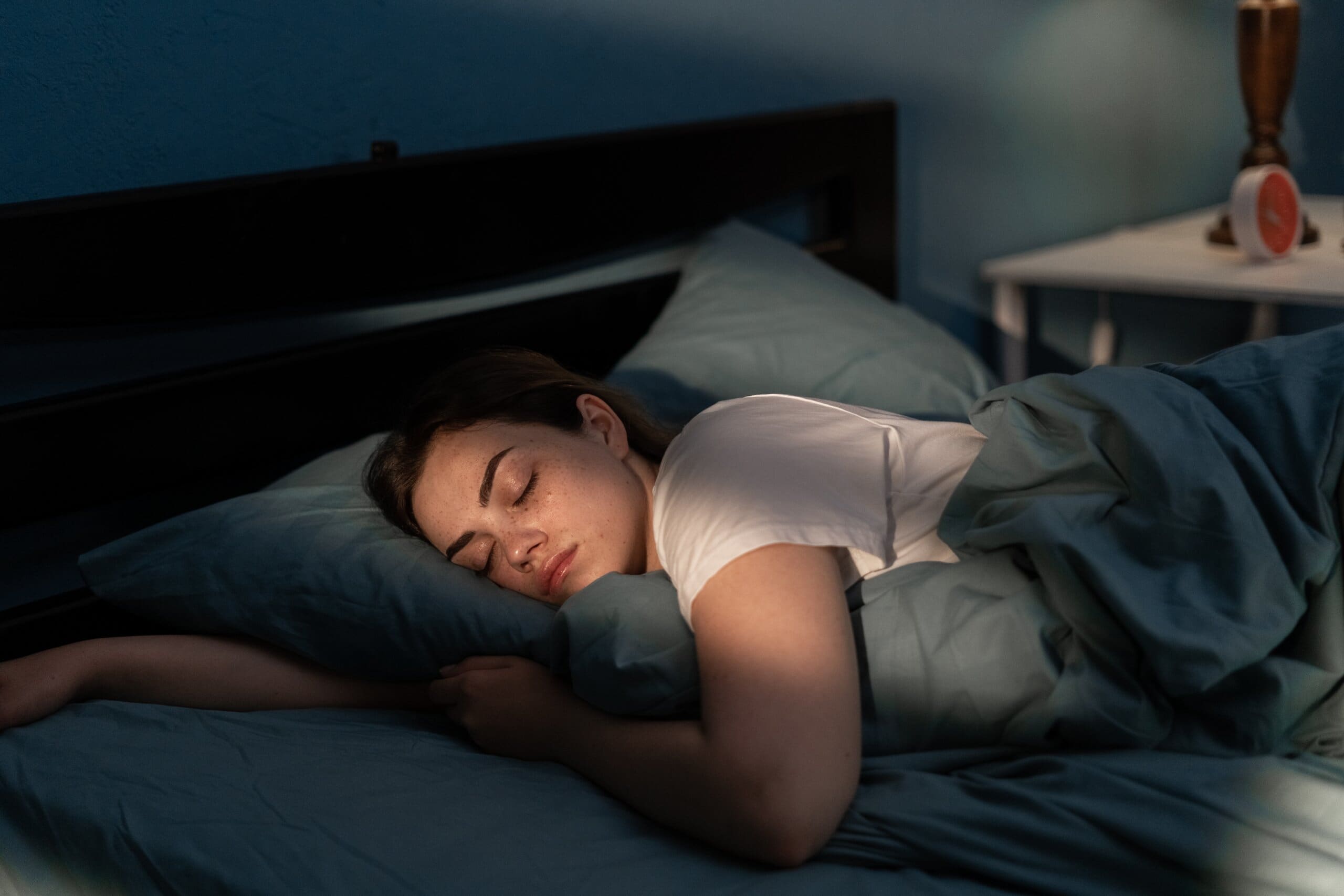
Are there any side effects of taking CBD for sleep?
It’s important to note that CBD might interfere with other medications, like blood thinners, so it’s important to speak to your doctor before trying CBD. CBD products from popular health stores like Holland & Barrett are completely legal and safe, so there’s no need to worry about telling your doctor.
Some say that CBD can cause side effects such as dry mouth, nausea, or drowsiness, but these are different for everyone. While cannabis can sometimes induce anxiety, this is usually due to the psychoactive effects of THC, of which there is none in CBD. It’s vital that any CBD product you consume is from a reputable brand and is safe and legal.
If you do start to experience any detrimental side effects after starting to take CBD products, you should speak to your doctor immediately.
When to take CBD oil for sleep
If you’re taking a CBD product specifically designed for sleep, it should tell you on the packaging when the optimal time to take it is. For example, Grass & Co. REST CBD+ Capsules should be taken 30-60 minutes before bed.
With CBD oil, our Sleep Experts suggest taking it around an hour before you intend to sleep. They also recommend taking it as part of a winding down bedtime routine, such as alongside meditation or a relaxing bath. They advise that for most people, it can take up to 30 minutes before you start to feel any effect, so be sure to leave enough time to get sleepy!
Get a better sleep with MattressNextDay
There is still plenty of room for research when it comes to better understanding the effects of CBD, but early studies seem to indicate that it can be useful for combatting a number of sleep issues. So, if you plan to use CBD oil for sleep, do be sure to check with your doctor or healthcare provider if you’re worried about anything. And while we’ve done our best to offer you the most up-to-date and accurate information we can, we do suggest that you do your own research first.
The effects of CBD can be different for everyone, so remember to start with a low dose and go slowly. With such a wide range of products available, and conflicting information, it’s important to stay up to date on the facts and discuss with a medical professional to figure out whether using CBD for sleep could help you.
But if you’re still looking for tips on a better night’s sleep and want to take a more traditional approach, our guides can help you improve your bedtime habits in a number of ways, from meditating before sleep, to stopping your teeth grinding in the night. Browse our Snooze News section for more!
